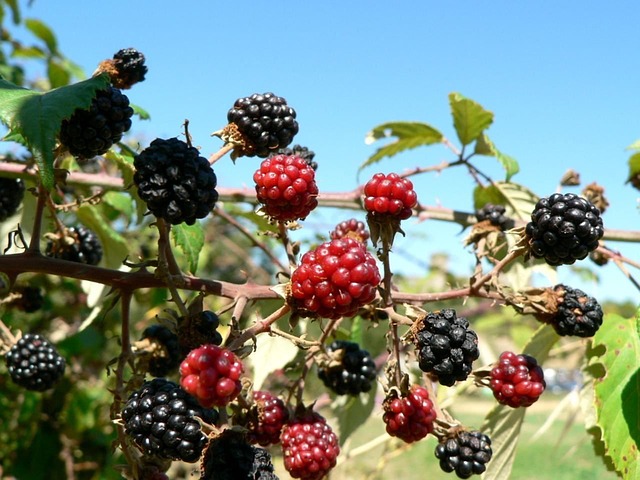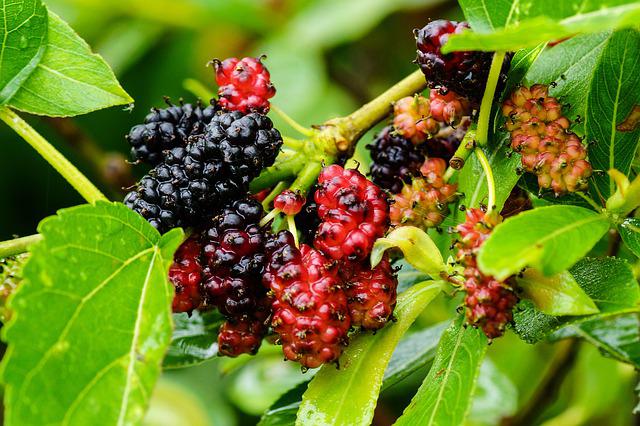When Do Mulberry Trees Stop Dropping Berries? 4 Ways to Prevent Premature Mulberry Fruit Droppings

Mulberry trees typically stop dropping berries around the end of September or early October. This is due to two factors: first, the yield from a mulberry tree’s fruit decreases as it gets closer to harvest time. Second, weather conditions start to become harsher. As a result, most farmers will pick their crops by this point to avoid loss. However, there can be variations based on location and climate. Once the berry season is over, the Mulberry trees will begin to reproduce by producing new woody stems and falling leaves. If you’re still interested in harvesting mulberries seasonally, it may be best to wait until later in the summer when conditions are more favorable.
Table of Contents
Mulberry Average Lifespan
Even though mulberry trees can grow in a wide range of conditions, their lifespan is still affected by how well they are cared for over a long period. The white mulberry (Morus alba) and the red mulberry (Morus rubra) are two types of mulberry trees that are related to each other (Morus rubra). People have seen white mulberry trees live longer than 100 years, but red mulberry trees rarely live longer than 75 years. Most mulberry trees grown in yards only live for 25 to 50 years. Mulberry trees don’t live as long as they should because of bad pruning, not enough water, insects, and diseases.
Factors that Cause Premature Droppings of Mulberry Fruit
- Overbearing Trees: mulberry trees that are overbearing, or have too many branches, can produce less fruit and drop their berries prematurely.
- Weather Conditions: harsh weather conditions, such as a heat wave or cold snap, can damage the tree’s fruit and cause it to drop the fruits.
- Insects and Diseases: insects, like aphids and scale worms, attack mulberry trees in their early stages of growth, while the disease is also a primary culprit in causing premature droppings.
- Poor Pruning: improperly trimmed or dead branches can also decay, break off, and drop mulberry fruit prematurely.
- Inadequate Pollination: when bumblebees, essential in pollinating, visit the flowers, the blooms will produce mulberry fruit. However, if there is not enough natural bee activity to do this, the Mulberry trees may drop their fruit prematurely.
4 Ways to Prevent Premature Mulberry Fruit Droppings
Prune Properly
Lastly, premature fruit drop is frequently caused by overbearing, which is most prevalent in young trees because these trees have less stored nutrition than mature trees. If the tree has to choose between saving itself and fruiting, sending nutrients to produce berries, or surviving on its own, the tree will, of course, choose to survive on its own. When trees have an excessive amount of fruit on their branches, the fruit’s weight can cause it to fall off prematurely.
- Before the tree drops the young fruit, it is essential to thin it out using pruning shears.
- Employing a small pruner, leave a space of 4 to 6 inches (10 to 15 cm) between the fruit clusters.
- You can also remove blossoms with your fingers before the petals fall off.
Combat Heat Wave and Cold Snap
Heat waves and cold snaps can be tough on your mulberry tree: not only do they cause leaves to drop, but they also reduce the amount of fruit that is produced. Here are some tips to help keep your tree healthy during these difficult times:
- Water your tree regularly – make sure it has enough water so that the soil retains its moisture and does not become dry or cracked. This will help protect roots from dehydration and fungus growth, which may occur in hot weather conditions. Make sure the water covers the root zone as deep as possible for best results.
- Avoid overwatering – overwatering can lead to foliage wilting due to high levels of sodium salts being released into the soil; this stressed plant then invites pests and diseases such as black spots into its environment (look out for aphids). Likewise, excessive irrigation during a cold snap can result in frozen branches or even snapped trees! Aim for optimal watering by consulting local sources or using a rain gauge/sensor near clusters of trees if you’re unsure how much water your plants need overall.
Increase Pollination
Increased Pollination around your mulberry tree can be achieved through companion planting, which also reduces the likelihood that insufficient Pollination will lead to an early loss of fruit.

Avoid Using Pest Controls
When the flowers bloom, you should also avoid using any pest control sprays that could potentially harm the pollinators. In severe cases of infestation, a pesticide or fungicide may be used to fight off disease-causing organisms and unwanted insects. Bear in mind that pesticides during the blossoming stage can hasten the dropping of fruit before it is fully ripe because they kill bees and other helpful insects.
